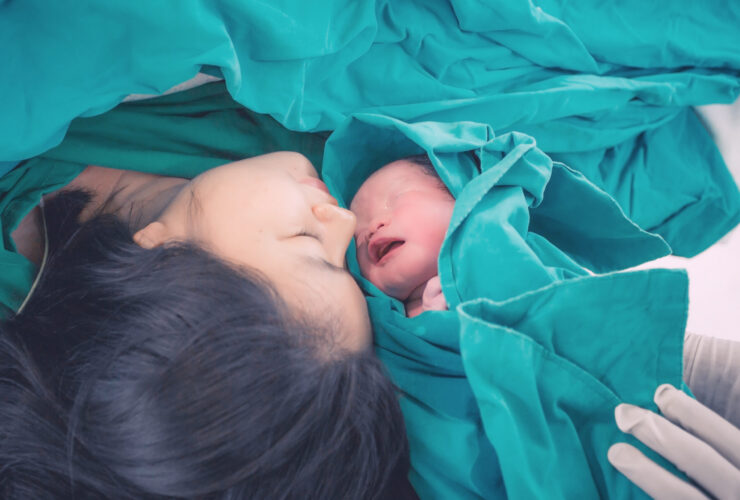Endometriosis is one of the more common issues for women in the fertile age range, and while many women may be unaware of its presence, conversely, women who have had it diagnosed are often very concerned for its future impact. Endometriosis is a condition where the glands that normally line the internal cavity of the uterus grow widely around the abdominal cavity, especially the pelvis. It can be flat in structure and look like splattered red paint, or it can form lumps (nodules) in particular areas. The ovaries are commonly affected, causing cysts (large blood-filled bubbles), which can lead to a number of issues.
What is endometriosis and what are the symptoms?
Endometriosis can present as severe menstrual or pelvic pain, heavy menstrual bleeding, as well as signs of it locally invading the bowel or bladder. Sometimes it doesn’t cause any symptoms, but can later be found when an exploratory keyhole surgery (laparoscopy) is carried out as an investigation for infertility. Between 30 – 50% of women who present with infertility will have co-existent endometriosis. Research has demonstrated significant improvement in fertility when it is surgically removed by laparoscopic surgery.
Risk factors for signs of endometriosis include having a mother or sister diagnosed, having a persistently shorter menstrual cycle, early onset of periods before 11 years of age, and exposure to environmental chemicals such as dioxins produced in some plastic manufacturing and chlorinated bleaching processes. Diet and other lifestyle factors don’t appear to have an impact.
If you have endometriosis and are hoping to get pregnant or have recently fallen pregnant, it’s important to consult with an endometriosis specialist in Melbourne who can help you navigate this exciting time.
Endometriosis and Pregnancy: How does endometriosis affect my pregnancy?
When a woman has had the diagnosis of endometriosis, she naturally may become concerned about its effect on pregnancy. This often increases anxiety over the likely success of having a family. Women with endometriosis are more likely to have had assisted reproduction or IVF to have achieved their pregnancy, which further increases concerns and vulnerability. They are also more likely to have a high-risk pregnancy, which is why it’s important to consult with your obstetrician.
Endometriosis and Pregnancy Risk: Can Endometriosis Cause Ectopic Pregnancy?
During pregnancy, endometriosis has the potential to contribute to several adverse pregnancy problems and can belinked with ectopic pregnancy. In early pregnancy, endometriosis is associated with double the risk of ectopic pregnancy (in fallopian tube), a 50-70% increased risk of early miscarriage and increased pelvic pain the first trimester.
A research meta-analysis of 24 worldwide studies involving more than one million women found that endometriosis is associated with:
- Increased risk of placenta praevia
- Increased risk in placental bleeding
- Increased caesarean birth
- Increased premature birth from 6-10% risk
- Increased foetal growth restriction
- Increased surveillance will be required to minimise the impact of these issues.
Further, if endometriosis previously had involved bowel or bladder complications or previous surgery on either of these organs for this reason, then there is an increased risk of bowel obstruction, bowel perforation, pain from adhesions, and an increased practical surgical risk if a caesarean is required for the birth. Vaginal birth may have a much lower risk for the mother than a caesarean section in some circumstances.
Pregnancy and subsequent months of breast feeding are majorly suppressive in endometriosis that was present prior to the start. This is further benefitted by another subsequent pregnancy if it occurs. After two or more full term pregnancies, a woman who had previously been deeply troubled by endometriosis and required drugs or surgery will unlikely be treated for this specific disease again before menopause. An unexpected gain for what is sometimes a terrible disease for so many women.
If you are concerned about endometriosis, consult with your gynaecologist and obstetrician, GP and have a high quality detailed ultrasound to look for only larger nodules or an ovarian cyst. If endometriosis is strongly considered to be present and causing disabling symptoms or infertility, then having a day surgery laparoscopy (keyhole surgery) for both assessment and removal may be most beneficial.


